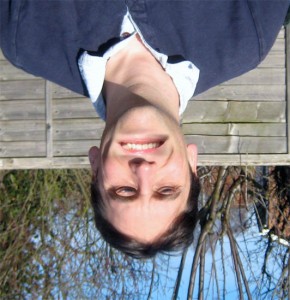Take a look at the picture on the right. There’s something rather unusual about it and no, I don’t just mean that it’s upside down.
I’ve written before about how our brains are extremely efficient pattern recognition machines, particularly when it comes to images which we encounter every day like human faces.
Studies have shown that even newborn babies are comforted even by a few dots and a line arranged in an appropriate facial pattern and our recognition abilities only increase as we get older.
It’s this ability that leads us to spot the man in the moon, faces on Mars or visions in toast. We have a schema image of what we expect a face to look like and have a tendency to map what we see onto that template which often makes it difficult to see anything else if reality isn’t actually quite what we expect.
With that in mind, let’s go back to the photo. Spotted what’s wrong yet?
It’s actually an example of what’s become known as the Thatcher effect. This was an example of how we can be fooled by images with misleading cues which was discovered by Peter Thompson, a senior lecturer in Psychology at the University of York. It’s known as the Thatcher effect as the photograph he used to demonstrate it was a picture of Margaret Thatcher.
Ok, time’s up. Perhaps if I flipped the photo above and showed it the right way up?
No, that’s not just me on a bad day (and I’m ignoring any comments from people who know me who just think that’s a normal picture).
It seems that we’re really bad at spotting facial elements which don’t meet our template. We don’t generally run into people with upside-down mouths and eyes in real life, so they don’t fit our schema and we don’t interpret what we see correctly.
Interestingly, people who have Prosopagnosia, a lack of the ability to recognise faces, aren’t effected by this illusion, suggesting that they’re not processing faces against a template in the same way. There’s some other nice examples of the effect on the internet, as well as this more subtle version [warning the last link contains adult language].




0 Responses
Stay in touch with the conversation, subscribe to the RSS feed for comments on this post.